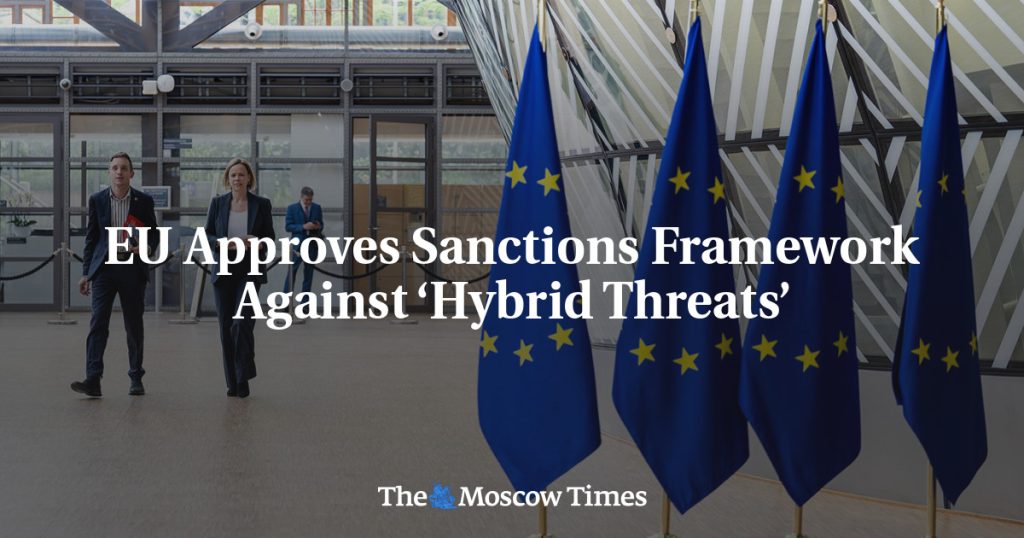The European Union has approved a new sanctions framework aimed at individuals responsible for actions deemed destabilizing by the EU. This framework will allow the EU to target individuals and entities engaged in activities that undermine the fundamental values of the EU and its member states. The goal of the framework is to combat hybrid threats, which include undermining electoral processes, acts of sabotage against critical infrastructure, disinformation, malicious cyber activities, and the weaponization of migrants.
Affected individuals could face asset freezes, bans on EU citizens and companies from providing funds to them, and travel bans. The decision to establish this framework was based on a proposal by EU foreign policy chief Josep Borrell and is part of the EU’s response to the continued campaign of hybrid activities by Russia. The European Council had called for the establishment of this new sanctions framework on June 27, in response to increased operations by Russia on European soil.
The EU has introduced its 14th package of sanctions against Russia on June 24, with more than 2,200 Russian individuals and entities currently sanctioned by the EU. These sanctions are part of the EU’s efforts to address Russia’s hybrid activities and protect the values and interests of its member states. The EU has continually increased its sanctions against Russia in response to various actions that are seen as destabilizing and threatening to European security.
The new sanctions framework is a response to the growing influence of Russia’s hybrid activities, which pose a threat to the stability and integrity of the EU and its member states. The framework is designed to target individuals and entities engaged in actions that undermine the core values of the EU, such as democracy, rule of law, and respect for human rights. By imposing sanctions on those responsible for such actions, the EU aims to deter further destabilizing activities and protect its interests and citizens.
The EU’s decision to establish this new sanctions framework is part of a broader effort to address the threats posed by Russia’s hybrid activities, including disinformation, cyber attacks, and other forms of manipulation. By targeting individuals and entities involved in these activities, the EU hopes to send a strong message that such actions will not be tolerated. The sanctions may include asset freezes, bans on financial transactions, and restrictions on travel, among other measures.
The EU’s ongoing efforts to counter Russia’s hybrid threats demonstrate the organization’s commitment to upholding its values and protecting the security of its member states. By imposing targeted sanctions on individuals and entities responsible for destabilizing actions, the EU aims to promote stability, security, and democracy within its borders. The new sanctions framework represents a significant step in the EU’s response to the challenges posed by Russia’s hybrid activities and reinforces the organization’s commitment to defending its interests and values.


